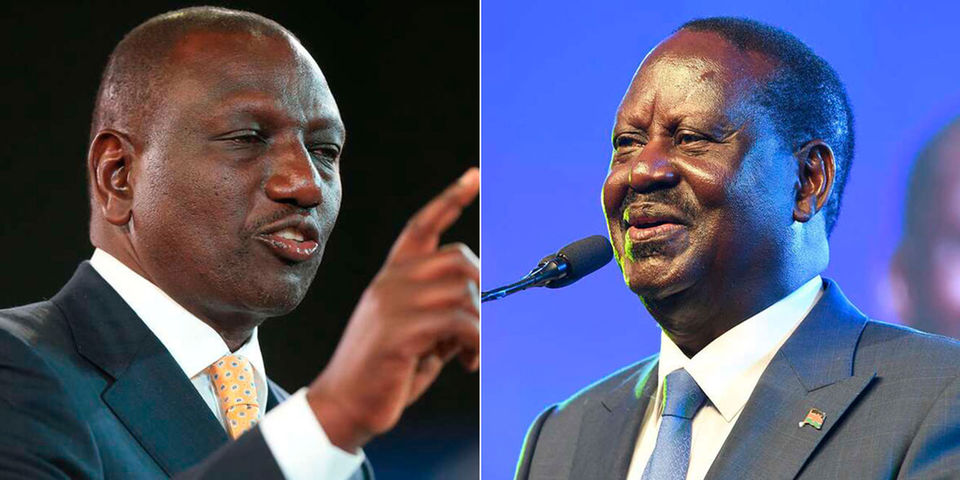Safaricom PLC reported a solid increase in profitability for the six months ending September 30, 2023, with the Kenyan company increasing net income by 10.9 percent to Sh41.6 billion.
Overall, the group net profit increased significantly in the six months to September 30, 2023, with the Kenyan business achieving a double-digit increase in net income to close at 10.9 percent to Sh41.6 billion.
Despite this, the entire group net income, excluding minority interest, increased by 2.1 percent to Sh34.2 billion, up from a 10.6 percent decline in FY23, while group service revenue increased by 10%.
The great result comes during a price reduction in Kenyan business, allowing clients to accomplish more for less.
Since 2020, Safaricom has gradually decreased data pricing by up to 65%, outgoing calls per minute by 44%, and M-Pesa tariffs by up to 61%.
The expansion has also been aided by the deliberate implementation of the business strategy, which has included the launch of youth-specific products, Safaricom Hook, and expedited 5G rollout.
“We have delivered a great set of results largely by supporting our customers with enhanced value and reduced prices on our products and services. We appreciate that everyone is going through a hard time and are committed as a business to support our customers cope. The reduced prices have seen our customers use more of our services hence the double-digit growth in profitability and revenue,” Peter Ndegwa, Safaricom CEO says.
Ethiopia operations hit all major milestones, boosted by an accelerated commercial momentum including the M-Pesa roll out which has seen the company register over 1.2 million customers on the platform in less than two months.
“This confirms what we have been saying about Ethiopia in terms of how it will significantly support our growth into the future. We are looking to maintain this momentum in the second half of the year,” he said.
With only 35% of Ethiopians being financially included, Safaricom’s strategic vision is to deepen financial inclusion and promote a cash-lite economy in Ethiopia.
“We see more opportunities with M-Pesa and mobile data, though coming off a small base. We are particularly impressed with the usage levels in mobile data. Such levels were only realized in Kenya after close to 10 years of operations,” Ndegwa said.
In September, Ethiopia data usage was higher than Kenya having closed at 4.3 gigabytes per customer compared to 3.7 for Kenya.
The strong performance comes on the backdrop of a price reduction in Kenya business allowing customers to do more for less.
Since 2020, Safaricom has progressively reduced up to 65% in data prices, 44% in outgoing calls per minute and up to 61% reduction in M-Pesa tariff.
The growth has also been supported by a purposeful execution of the business strategy that included the launch of youth-specific product, Safaricom Hook and accelerated 5G rollout.
“We have delivered a great set of results largely by supporting our customers with enhanced value and reduced prices on our products and services. We appreciate that everyone is going through a hard time and are committed as a business to support our customers cope. The reduced prices have seen our customers use more of our services hence the double-digit growth in profitability and revenue,” Peter Ndegwa, Safaricom CEO says.
Ethiopia operations hit all major milestones, boosted by an accelerated commercial momentum including the M-Pesa rollout out which has seen the company register over 1.2 million customers on the platform in less than two months.
“This confirms what we have been saying about Ethiopia in terms of how it will significantly support our growth into the future. We are looking to maintain this momentum in the second half of the year,” he said.
With only 35% of Ethiopians being financially included, Safaricom’s strategic vision is to deepen financial inclusion and promote a cash-lite economy in Ethiopia.
“We see more opportunities with M-Pesa and mobile data, though coming off a small base. We are particularly impressed with the usage levels in mobile data. Such levels were only realized in Kenya after close to 10 years of operations,” Ndegwa said.
In September, Ethiopia data usage was higher than Kenya having closed at 4.3 gigabytes per customer compared to 3.7 for Kenya.










































